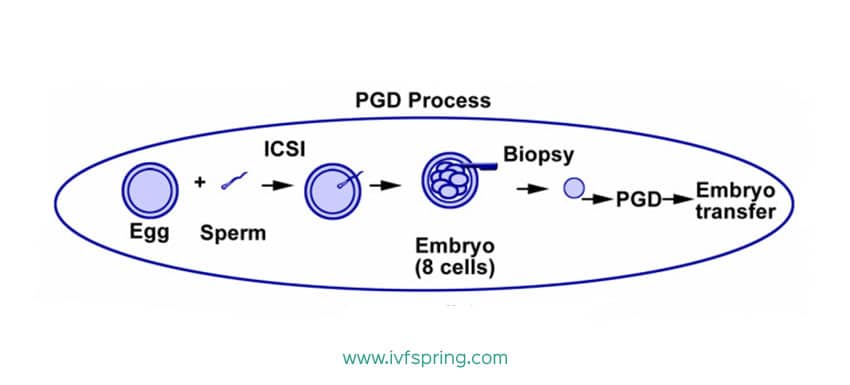If you are dealing with infertility then you must be undergoing the IVF treatment. This treatment has higher success rates and is one of the most effective fertility treatments. However, there may be some reasons for which sometimes the IVF treatment fails. Hormonal problems, uterine abnormalities, maternal conditions such as Diabetes, infections, and genetic disorders are often the causes of IVF failure or miscarriage. It has been proved that couples with genetic disorders usually face problem in conceiving even after the IVF treatment. Pre-implantation genetic diagnosis (PGD) is one of the effective methods in support of the IVF treatment to identify the genetic defects present in the couples which may cause hindrance in conceiving.
What is Pre-Implantation Genetic Diagnosis (PGD)?
It is a technique which is generally used at the time of the IVF treatment. It is done so as to identify the genetic defects present in the embryos if any. This process prevents the genetic diseases to be passed on to the child.
PGD Procedure

At IVF spring, PGD is performed in our laboratories by our embryologists. The steps to conduct a PGD are:
- Firstly, some of the cells are removed from the embryos and are kept for developing and then are frozen safely.
- After that, the evaluation of the DNA of these cells takes place so as to examine any kind of defect in the gene. This is almost a week’s process.
- The defect-free embryos are then placed in the uterus by the IVF method.
- This ensures the implantation and positive pregnancy period.
- The defected embryos are discarded
Who is PGD suitable for?
You must be thinking that after so much of investment of time in the IVF treatment, why should you go for this additional process. Well, it is as important as the rest of the treatment. Want to know for whom is it suitable for? Here is the answer:
- The couples having any kind of chromosomal abnormalities.
- Couples who have faced prolonged reproductive losses.
- Women experiencing recurrent miscarriages.
- Those have gone through the chemotherapy or other radiation treatments.
- Women above the age of 35 years.
- Any kind of hereditary disease in the couples.
- Repetitive failure in the IVF treatment
Advantages of PGD
PGD benefits people who have lost hope of giving birth to a child even after several fertility treatments. Here are some advantages of PGD:
- This test can detect about 100 different genetic disorders.
- This process is done before the implantation and hence giving a choice to the couples to continue the pregnancy or not.
- The rate of passing of the genetic diseases to the coming generations is reduced.
- It enhances the success rate of the IVF treatment.
Many people see infertility as a curse on a person. This shatters the patient from the core. But with the advancement in medical science, there are some effective fertility treatments that help couples to have their own biological child. PGD and IVF treatment at IVF Spring Fertility Centre, Mumbai is done by highly qualified embryologists and specialists with the assistance of the staff who are well-versed with the medical know-how. If you are unable to conceive or you don’t want to pass on the genetic defects present in you in your child then get your PGD done along with the IVF treatment.


